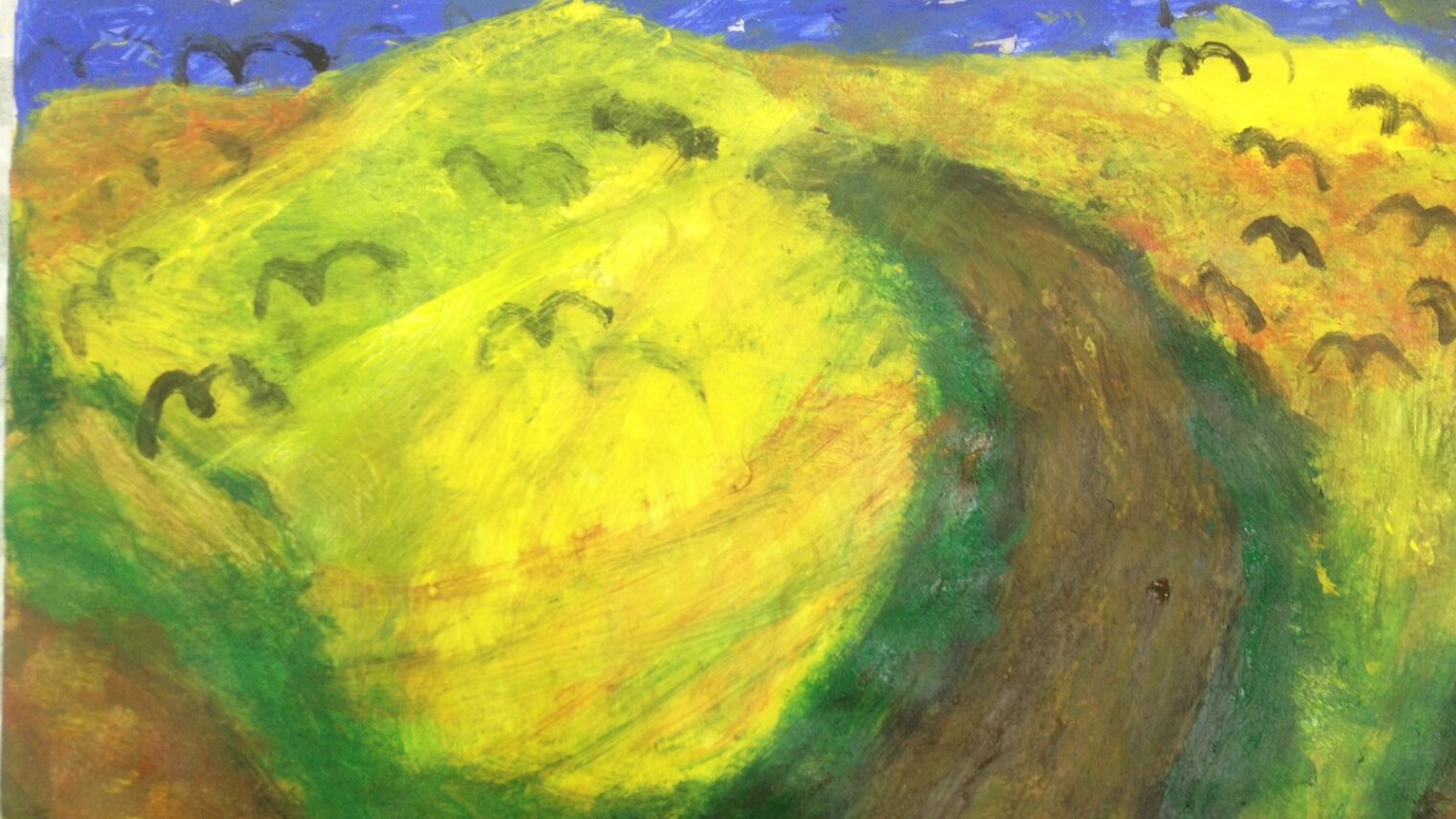“I learned that life is not beautiful without colors … it’s not a full life in just black and white,” says Lila Adoi, 23, one of nine visually impaired Israelis who chose to participate in a unique painting workshop at the Haifa-area branch of Migdal Or (Lighthouse), a multi-service center for functional and vocational rehabilitation of people with vision challenges.
Though art isn’t ordinarily considered functional or vocational, Migdal Or social worker Mirit Yakobi explains to ISRAEL21c: “If we want to help our clients to believe they can do almost anything and be productive citizens, we must let them try something they didn’t think possible, like painting.
“Most of the people who come for training at Migdal Or have always been told that they cannot do this or that. Painting seems like a strange activity for them, but once they try it they realize that if they can paint despite vision problems, perhaps they can succeed in something else they are afraid to try.”
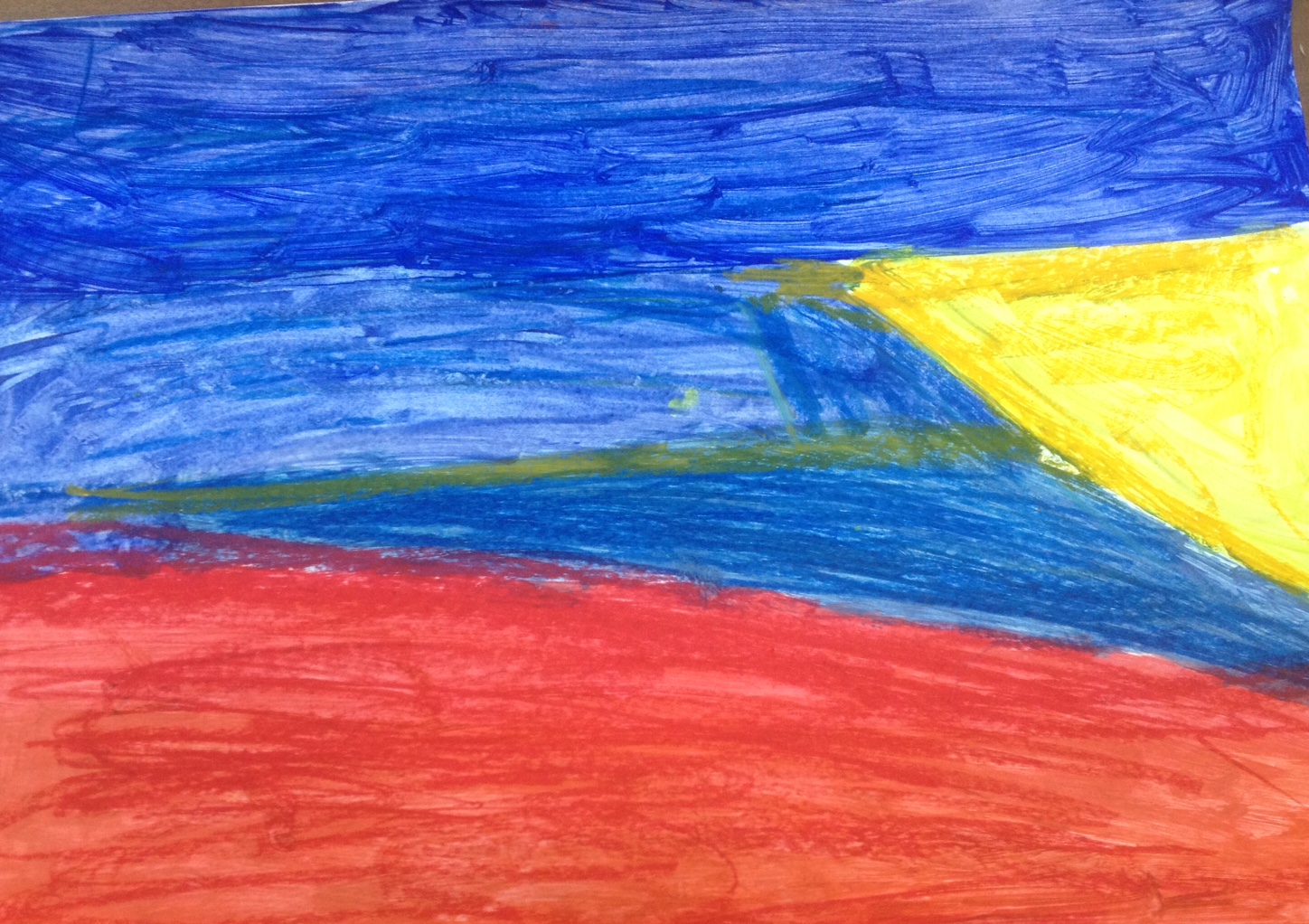
The new painting workshop launched in August 2015 is taught by volunteer Shlomi Schwarzberg, an artist in residence at Israel’s Ein Hod artists’ colony, where the students will exhibit their work when the workshop ends in January.
“I have no practical education on teaching blind people, so I do it in my own intuitive way,” Schwarzberg tells ISRAEL21c. “I gave them photos of paintings of other artists, such as Van Gogh, because they cannot paint from their own imagination and need something to copy from.”
Most of the participants have limited vision. “One is completely blind and I let her do her own thing,” says Schwarzberg.
“Another can see only in black and white, and not well, so she asks me to give her the right colors. I don’t give many instructions because I want them to feel free and not expect too much from themselves. I sometimes give individual guidance like adding more water or oil, or a little about technique, but I never touch the paper itself.”
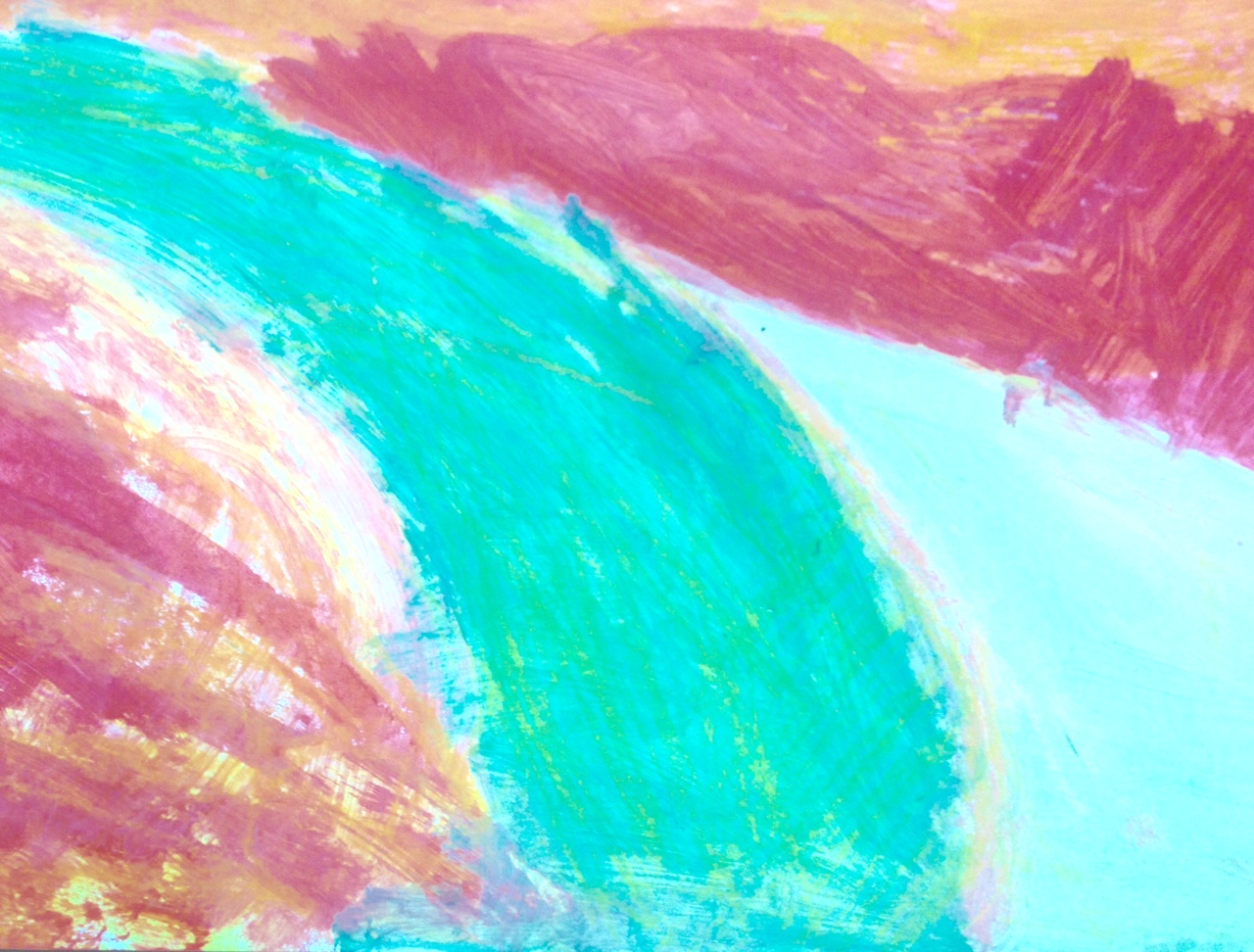
Schwarzberg started out his students with oil pastels and gradually moved on to acrylic paint on thick artist paper. “We framed 30 paintings for an exhibition at the center in December for volunteer appreciation night, and my students were very emotional about it. The results are quite a surprise to me; I didn’t expect such good results from adults with no previous art education.”
Wallaa Mahamid, 19, tells ISRAEL21c she chose the painting elective “because I like to paint but can’t do it on my own. I am color blind and can’t see at a distance, but it didn’t stop me from painting. I got help from friends or volunteers who passed on the different paints whenever I asked them.”
As Yakobi had hoped, the weekly one-hour course gave Mahamid greater self-confidence and mastery over his fears. “It taught me not to take things personally and to get assistance from others in order to succeed in what I do. I learned at the workshop that it is possible to succeed in fields I never thought I could enter, and that my situation doesn’t prevent me from getting ahead in life,” says Mahamid.
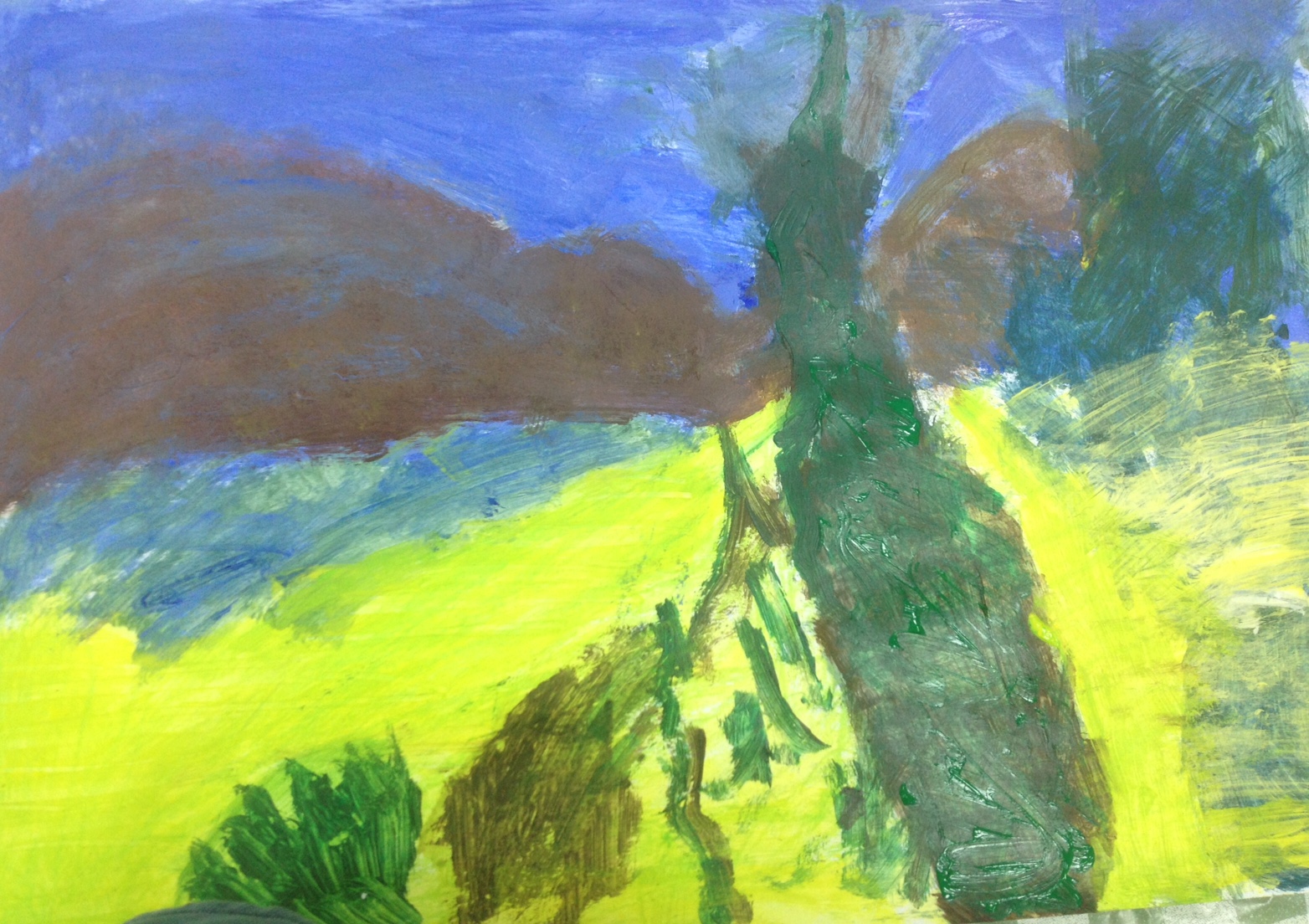
Founded in 1954, Migdal Or has been operating since 2011 under the auspices of Northern Goals, an association established by the Rashi Foundation. It also has branches in Tel Aviv and Jerusalem.
Each client is assessed to determine abilities, needs and wishes before starting an individualized program of training in practical subjects such as computer skills, technology, English and Hebrew (for Arab and immigrant clients, as well as native Israelis needing a higher level of Hebrew to enter college).
A model apartment lets them practice housekeeping tasks, and they receive guidance on using public transportation and navigating public places. They learn how to use mobile apps developed to assist visually impaired people, supported by a call center staffed by peers.
“The main goal in assessment and training is to make sure they can get a job,” says Yakobi. “If they need academics we prepare them for this too. We want to close the gap between potential and abilities. We encourage them to do things they never did before and that nobody ever asked them to do. We give them all this in the belief that they can then deal with the real world.”
She stresses that Migdal Or’s optional workshops – painting, baking and dance – are uniquely considered part of the vocational rehab process and not simply leisure activities.
Yakobi spoke of one blind young woman whose parents were always afraid to let her do anything herself. The woman chose the painting workshop as an elective but on the first day was hesitant to enter the classroom.
“I persuaded her to come inside and Shlomi took her hand and drew a square with her, and from then on she was eager to come,” says Yakobi. “I can see that she has more self-confidence to try new things although she has a long way to go.”
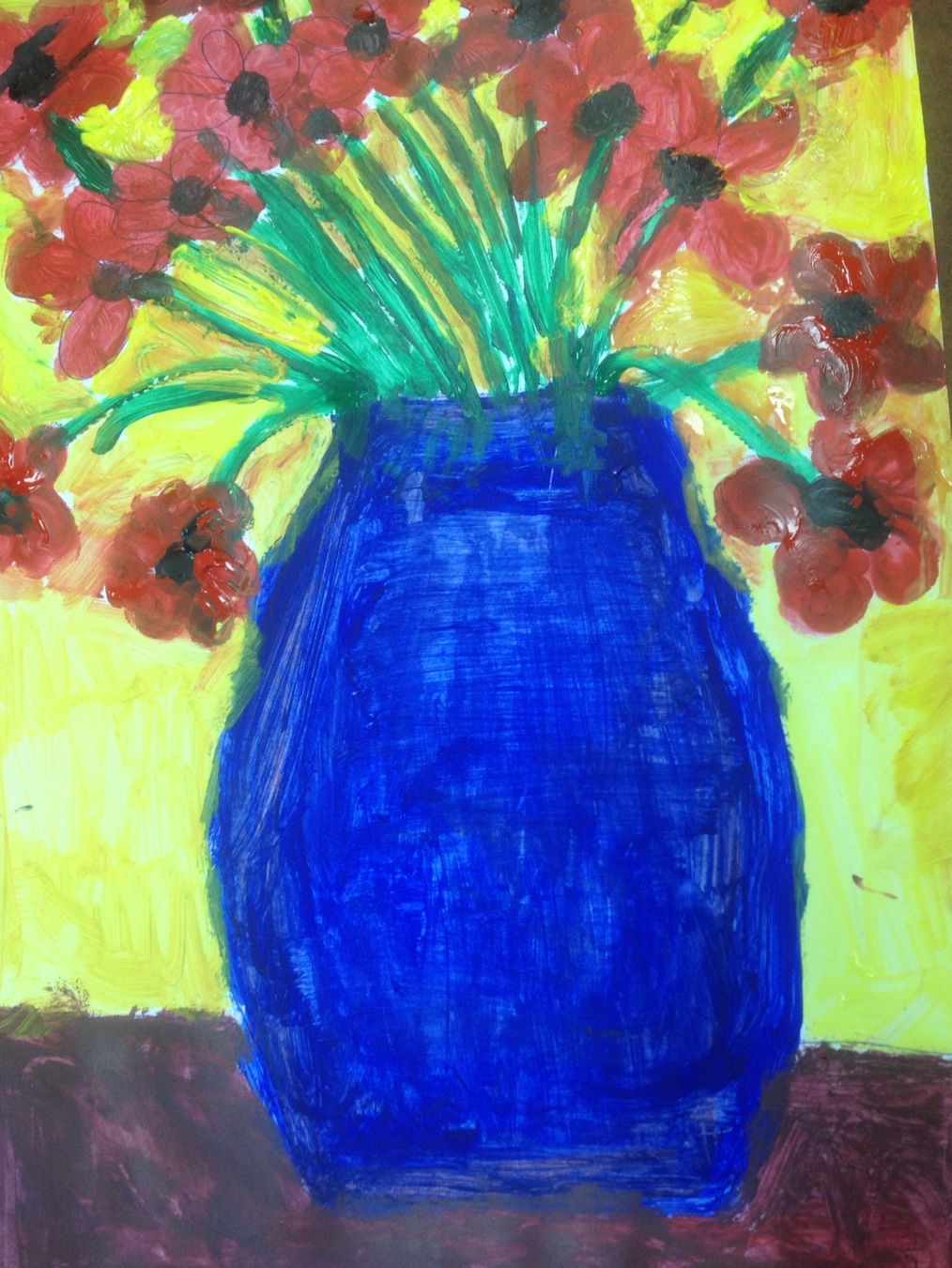
Schwarzberg says that another of his students, Ismail, “started by doing things in a very accurate way, one line touching another, one color at a time. Slowly I tried to get him to be freer with his work and he is now mixing colors; he even made sort of a comic strip. We have a lot of laughs during the workshop.”
Three of the participants continued coming to the workshop even after finishing their training at Migdal Or.
“The most important thing about the workshop is that it allowed me to see colors, to tell them apart,” says Adoi. “I can’t imagine my life without colors.”
For more information, click here.




